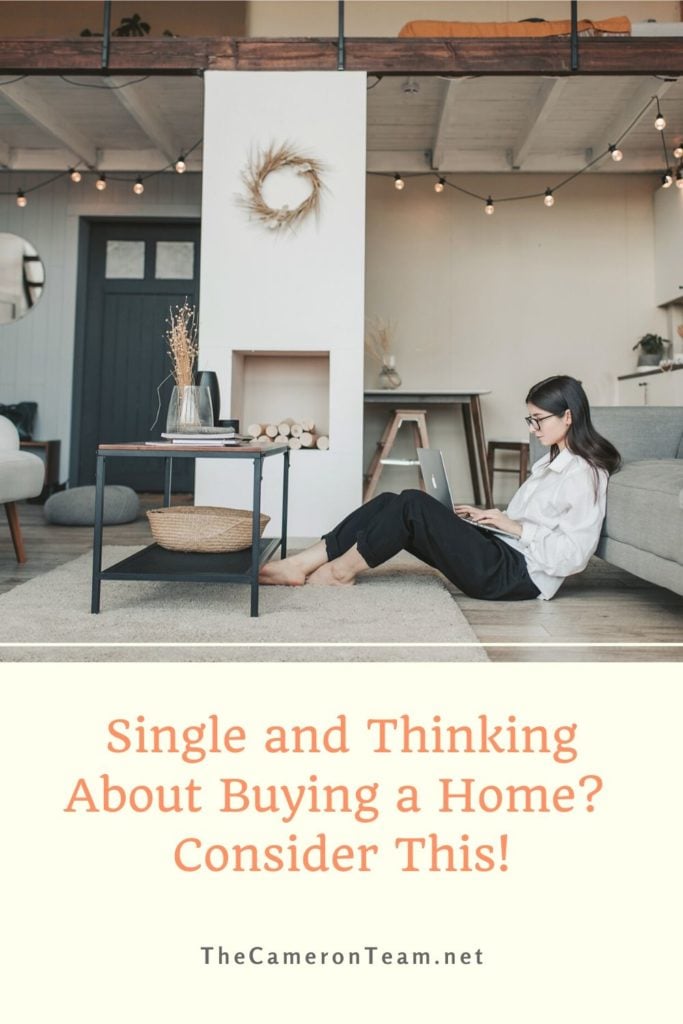According to HAUS and U.S. Census data, single homeowners are breaking records in the United States. They now own 38.4% of owner-occupied housing, the highest it’s been since 1900, the earliest year for U.S. Census records. The rise comes due to two segments of the population: people under 35 and those over 55 years of age. But the reasoning for both are different.
Many of the people under the age of 35 buying homes have never been married. The trend used to be that you got married, bought a home, and started a family. Nowadays, more people are putting off getting married or no longer rely on the traditional safety nets of marriage. But they still see the financial value of buying a home, rather than renting.
For homeowners over 55, the trend is an increasingly higher share of the divorce rate. After separating from their significant others, older single buyers are moving on to their own homes. On the contrast, widowed single homeowners over 55 are in a relatively steep decline. Is there a correlation that one is going down while the other is going up? I’ll let you come to your own conclusions.
The highest number of single buyers are located in the South and Midwest. This is mainly because some of the costliest metro areas are located in the West and North East. Interestingly, the number of female buyers has outpaced males since the 1940s. A 2019 study of home buyers by the National Association of REALTORS® showed that 17% of buyers were single females while only 9% were single males.
Purchasing a Home as a Single Buyer
Are you a single buyer considering purchasing a home? First, decide how much you can afford. Lenders want to see a debt-to-income ratio (your debt divided by your income) that is below 36%. While a Mortgage Calculator is good for figuring out a ballpark number, it doesn’t take into account the extra costs of buying (closing costs, inspections, etc.) and owning a home (taxes, insurance, HOA fees, etc.), nor the true interest rate you’ll be approved for. Getting pre-qualified or pre-approved with a mortgage broker is even better (let us know if you need someone local).
Keep in mind that you do not need to be married to buy a home with another person. If your finances don’t quite meet the requirements of lenders, purchasing a home with a parent, grown child, or a close friend is also an option. Just make sure you’re on really good terms before doing so.
Once you have a price range for properties, you can decide what kind of home you want. Condominiums and townhomes are popular with single buyers. They generally have a lower mortgage payment and less maintenance than single-family detached homes. They may also have more security options and amenities, depending on the community.
Not all buyers enjoy the layout and regulations of condo and townhome communities. Homeowners live considerably closer to each other than in single-family detached homes and all residents must agree to certain standards of living. If that doesn’t sound appealing, and you’re willing to take on the extra maintenance and responsibility of a standalone home, don’t let being single hold you back from making that leap.
You’ll also want to consider your future milestones. Do you plan on expanding your family? You may want a home with extra bedrooms. Do you want to adopt a dog? You’ll want a yard or a community with a dog run, as well as a community that doesn’t have breed or size restrictions that don’t fit your plans. Are you hoping to change jobs? Pick a home that has a reasonable commute time to wherever you want to head to next.
Living alone raises security concerns among single home buyers. If you’re planning to purchase a condo or townhome, you may want to consider a community that has gated entry, well-lit parking areas, or other security measures. If you’re looking at single-family detached homes, look for one with a security system and fenced back yard. Of course, research crime in potential communities (statistics can be found online) and choose one with a low rate.
It’s important to understand that you don’t need to purchase with the full amount you are approved for. It may not be in your best interests. After paying your monthly bills, including your mortgage, you should be able to set aside some money for emergencies. If the mortgage payment you’re approved for doesn’t allow for that, aim a little lower.
Are you ready to take the first steps to buying a home? If you’re looking the greater Wilmington area, give us a call at (910) 202-2546. We have some great buyer specialists on our team who have helped single buyers in the past. If you’re buying outside Wilmington, we can help you find the perfect agent. Just let us know where you’re heading.
[the_grid name=”Home Buyer Tips”]




